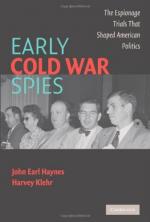|
This section contains 569 words (approx. 2 pages at 300 words per page) |

|
After the terrorist attacks of September 11, 2001, President George W. Bush declared a war on terrorism. The nation’s intelligence agencies immediately implemented national security policies designed to prevent future terrorist attacks against the United States. Some policies expanded these agencies’ power to gather intelligence, giving them greater authority to conduct surveillance on, gather information about, and detain individuals suspected of plotting terrorist acts. Shortly thereafter, civil libertarians challenged these policies, renewing the debate over how to balance national security and civil liberties.
Those who support new intelligence-gathering policies argue that preventing the loss of American lives requires some restriction of civil liberties. The United States, they argue, has a history of restricting civil liberties during times of war without experiencing any long-term ill effects. Some claim that the new security policies employed in the war against terrorism...
|
This section contains 569 words (approx. 2 pages at 300 words per page) |

|




